
Augustine of Hippo, also known as Saint Augustine, was a theologian and philosopher of Berber origin and the bishop of Hippo Regius in Numidia, Roman North Africa. His writings influenced the development of Western philosophy and Western Christianity, and he is viewed as one of the most important Church Fathers of the Latin Church in the Patristic Period. His many important works include The City of God, On Christian Doctrine, and Confessions.
Political freedom is a central concept in history and political thought and one of the most important features of democratic societies. Political freedom has been described as freedom from oppression or coercion, the absence of disabling conditions for an individual and the fulfillment of enabling conditions, or the absence of life conditions of compulsion, e.g. economic compulsion, in a society. Although political freedom is often interpreted negatively as the freedom from unreasonable external constraints on action, it can also refer to the positive exercise of rights, capacities and possibilities for action and the exercise of social or group rights. The concept can also include freedom from internal constraints on political action or speech. The concept of political freedom is closely connected with the concepts of civil liberties and human rights, which in democratic societies are usually afforded legal protection from the state.

Hannah Arendt was a German-American historian and philosopher. She was one of the most influential political theorists of the 20th century.
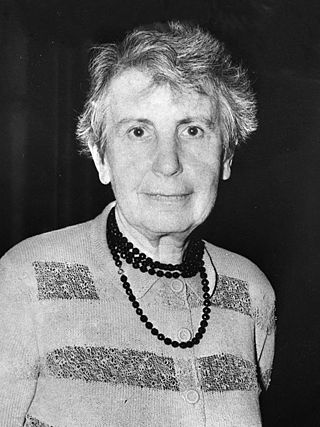
Anna Freud CBE was a British psychoanalyst of Austrian–Jewish descent. She was born in Vienna, the sixth and youngest child of Sigmund Freud and Martha Bernays. She followed the path of her father and contributed to the field of psychoanalysis. Alongside Hermine Hug-Hellmuth and Melanie Klein, she may be considered the founder of psychoanalytic child psychology.

Heinrich Friedrich Ernst Blücher was a German poet and philosopher. He was the second husband of Hannah Arendt whom he had first met in Paris in 1936. During his life in America, Blücher traveled in popular academic circles and appears prominently in the lives of various New York intellectuals.
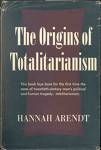
The Origins of Totalitarianism, published in 1951, was Hannah Arendt's first major work, where she describes and analyzes Nazism and Stalinism as the major totalitarian political movements of the first half of the 20th century.

Gershom Scholem was a German-born Israeli philosopher and historian. Widely regarded as the founder of modern academic study of the Kabbalah, Scholem was appointed the first professor of Jewish mysticism at Hebrew University of Jerusalem.
Existential phenomenology encompasses a wide range of thinkers who take up the view that philosophy must begin from experience like phenomenology, but argues for the temporality of personal existence as the framework for analysis of the human condition.
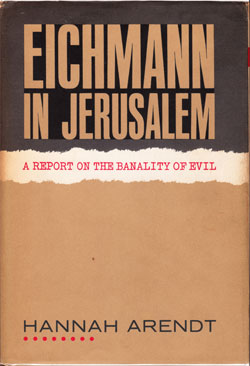
Eichmann in Jerusalem: A Report on the Banality of Evil is a 1963 book by the philosopher and political thinker Hannah Arendt. Arendt, a Jew who fled Germany during Adolf Hitler's rise to power, reported on the trial of Adolf Eichmann, one of the major organizers of the Holocaust, for The New Yorker. A revised and enlarged edition was published in 1964.

Barbara Sukowa is a German actress of screen and stage and singer. She has received three German Film Awards for Best Actress, three Bavarian Film Awards, Cannes Film Festival Award for Best Actress, Venice Film Festival Award, as well as nominations for European Film Awards, César Awards and Grammy Awards.
Elisabeth Young-Bruehl was an American academic, psychotherapist and psychoanalyst. She published a wide range of books, most notably biographies of Hannah Arendt and Anna Freud. Her 1982 biography of Arendt won the first Harcourt Award while The Anatomy of Prejudices won the Association of American Publishers' prize for Best Book in Psychology in 1996. She was a member of the Toronto Psychoanalytic Society and co-founder of Caversham Productions, a company that makes psychoanalytic educational materials.

Helium Vola is a German "electro-medieval" band founded in 2001 by Ernst Horn, who was also one of the founding members of Deine Lakaien and Qntal. Helium Vola interpret medieval lyrics in a modern, electronic soundscape. The music covers a broad range of styles from dance floor pop songs to forms adapted from classical music with an emphasis on ensemble pieces. The band is mainly a studio project. However, through the years a few live performances took place, most of them featuring the project's main vocalist Sabine Lutzenberger.
Adriana Cavarero is an Italian philosopher and feminist thinker. She holds the title of Professor of Political Philosophy at the Università degli studi di Verona. She has also held visiting appointments at the University of California, Berkeley and Santa Barbara, at the New York University and Harvard. Cavarero is widely recognized in Italy, Europe and the English-speaking world for her writings on feminism and theories of sexual difference, on Plato, on Hannah Arendt, on theories of narration and on a wide range of issues in political philosophy and literature.

Between Past and Future is a book written by the German-born Jewish American political theorist, Hannah Arendt, and first published in 1961, dealing with eight topics in political thinking.
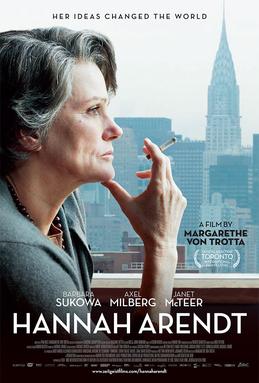
Hannah Arendt is a 2012 biographical drama film directed by Margarethe von Trotta and starring Barbara Sukowa. An international co-production from Germany, Luxembourg and France, the film centers on the life of German-Jewish philosopher and political theorist Hannah Arendt. The film, distributed by Zeitgeist Films in the United States, opened theatrically on 29 May 2013.
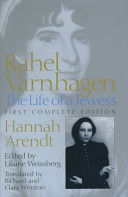
Rahel Varnhagen: The Life of a Jewess is a biography of Rahel Varnhagen written by political philosopher Hannah Arendt. Originally her Habilitationsschrift she completed it in exile as a refugee, but was not published till 1957, in English, in the UK (London) by East and West Library.
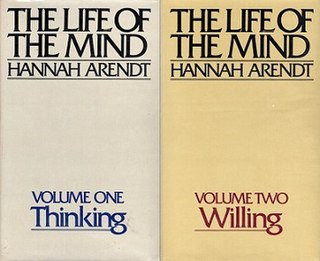
The Life of the Mind was the final work of Hannah Arendt (1906–1975), and was unfinished at the time of her death. Designed to be in three parts, only the first two had been completed and the first page of the third part was in her typewriter the evening of the day she suddenly died. The unfinished work was edited by her friend, author Mary McCarthy, and published in two volumes in 1977 and 1978.
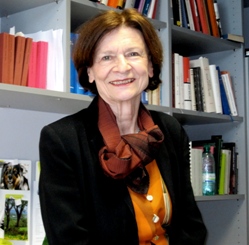
Antonia Grunenberg is a German political scientist, totalitarianism researcher and an expert on the political thought of Hannah Arendt. She is professor emerita at the University of Oldenburg, where she taught as a full professor from 1998 until her 2009 retirement, and where she was director of the Hannah Arendt Centre. She is also editor of the book series Hannah Arendt Studies.
This is a bibliography of works about the philosopher Hannah Arendt.













